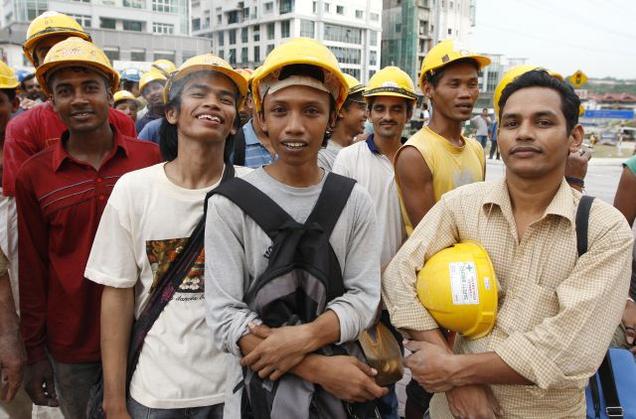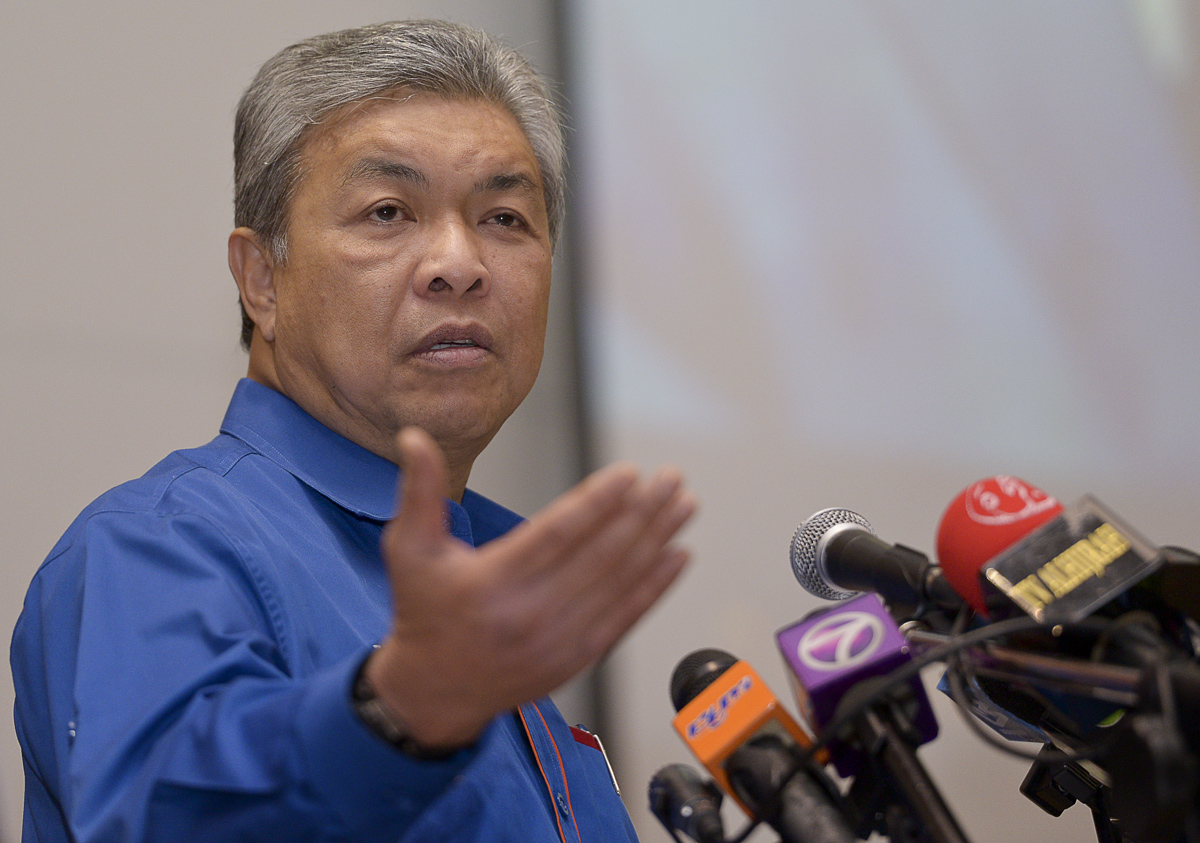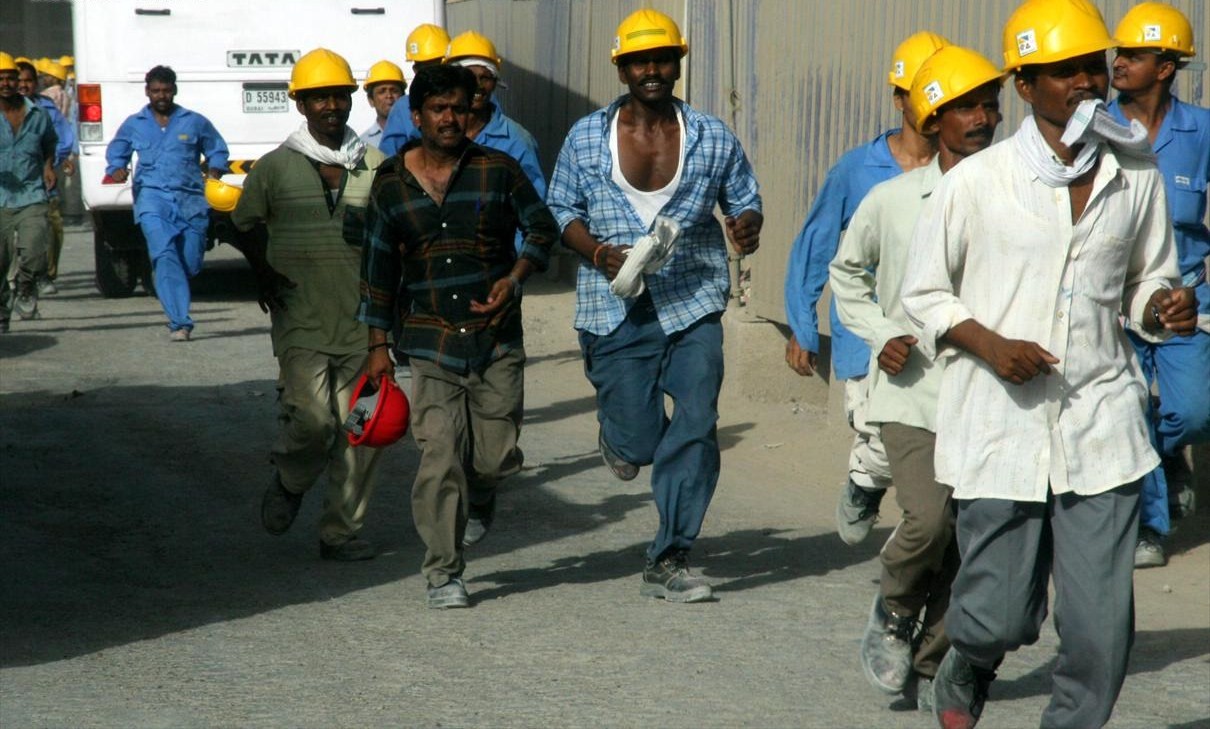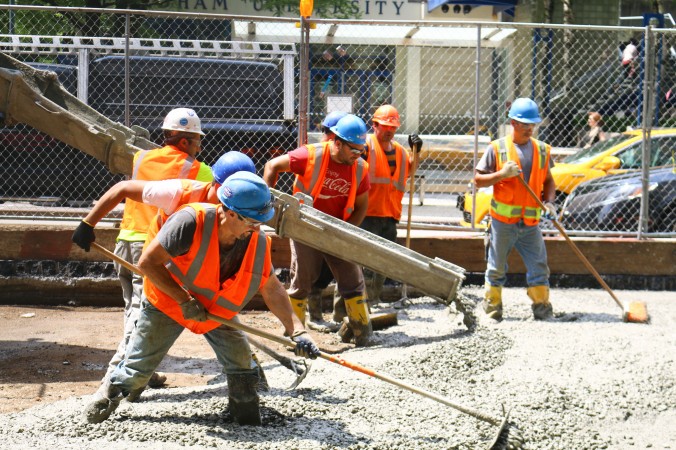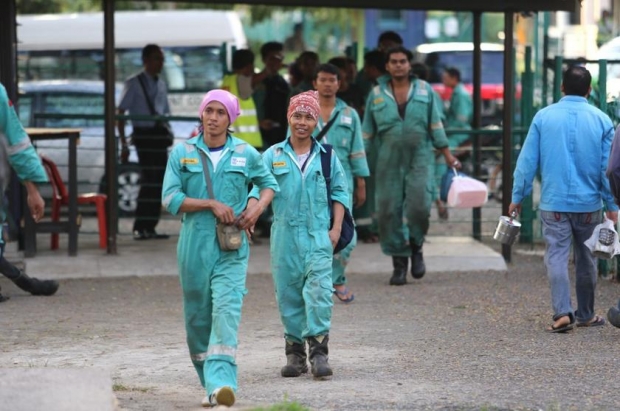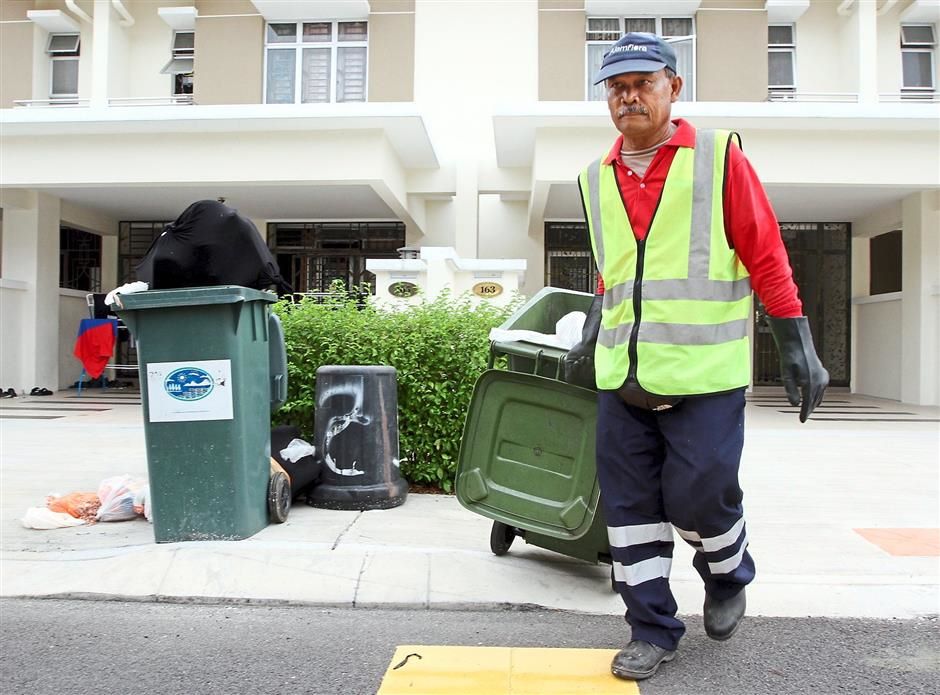Why Aren't Young Malaysians Interested In Dirty, Difficult, And Dangerous Jobs?
Low wages, poor working conditions or sheer dislike?
It is no news that Malaysians have been greatly disappointed with the high number of blue-collar foreign workers in Malaysia, with many chiding the government's growing reliability on them
Just mid last year, in June 2015, the government informed that they would be bringing in 1.5 million Bangladeshi workers to work in various industries including, the plantation, construction and the food and beverage field.
The revelation lead to a major debate between the government authorities and members of the public about how the increasing intake of foreign workers is directly affecting the unemployment issue in the country.
Last year, the government revealed that we have more than two million foreign workers in Malaysia, a figure that outnumbers the number of ethnic Indians in Malaysia which only stands at about 1.98 million.
The decade old debate boiled over recently, when Deputy Prime Minister Datuk Seri Dr Ahmad Zahid Hamidi, challenged Malaysian youths to take up the '3D' (dirty, difficult and dangerous) jobs that are usually aimed at migrant workers
He said that if the 3D jobs could be done by Malaysians, there is no need for the country to rely on foreign workers including Bangladeshis.
“Do you agree if all foreign workers are sent back to their own countries? Are you willing to pluck fruits in a farm? Sweep garbage?," asked Ahmad Zahid to hundreds of students who attended the Selangor Youth Council annual general assembly at Intekma Resort here, today.
"How many Malaysians want to work in 3D ? What choice do we have ? I challenge youths to take over all the 3D jobs,” he said.
Zahid also stressed that the country also required the expertise of skilled and semi-skilled workers in these sectors in order to develop its economy.
If the solution is as simple as these politicians make it sound, why is it that youths are still not interested to take up 3D jobs?
Young Malaysians and most members of the opposition, insist that the country should stop relying on migrants to work in these industries and instead increase the minimum wage so that Malaysians can take up these jobs
Putrajaya should increase minimum wage to RM1,500, said PKR, responding to Datuk Seri Ahmad Zahid Hamidi's call on Malaysian youths to take up dirty and dangerous jobs to help Malaysia reduce its dependency on migrant workers.
PKR Youth vice-chief Fahmi Fadzil said it was clear that the home minister failed to realise the real reasons local youths shied away from "3D" jobs, or jobs considered dirty, difficult and dangerous.
Fahmi also urged Zahid to ensure a vocational education system and to offer incentives to funders and employers as well as youths to take over jobs currently monopolised by foreign workers.
Apart from raising the minimum wage to RM1,500 a month, he said the government must also ensure that rights of employees were protected by strengthening workers' unions.
What are 3D jobs?
3D is a term that that is commonly used to describe jobs in industries that can potentially be dirty, dangerous and difficult. In Malaysia, jobs in the construction, plantation, automotive maintenance, cleaning services and other similar vocational occupations fall under the 3D category.
For years now, these jobs are usually outsourced to interested individuals from economically struggling neighbouring countries such as Nepal, Philippines, Indonesia, India and Bangladesh to name a few.
It is a known fact that individuals from these countries are forced to seek for job placements in other well developed nations due to the limited employment opportunities in their home countries.
Often poverty stricken with large families to care for, these foreign workers are obliging enough to pick up all these dirty, dangerous and difficult jobs to put food on the table.
What is the minimum wage in Malaysia?
The government informed in October 2015 that they would be increasing the minimum wage for employees in peninsular Malaysia to RM1,000 except for those in the domestic service.
As for the ones in West Malaysia, they would see an increase of RM120, making the minimum wage RM920.
The new amount for wages will take in July 2016.
Despite everything the government has said in the past about Malaysian youths shunning 3D jobs for its low wages, Youth and Sports Minister Khairy Jamaluddin, stressed that 3D employers simply cannot afford to increase the salary for those in the industry
It is just “reality” that employers in the “3D industries” that deal with dirty, difficult and dangerous jobs are unable to offer to pay higher wages to engage Malaysians, Youth and Sports Minister Khairy Jamaluddin said today, amid a growing storm over the government’s leniency on foreign worker hire.
“At this time, I believe the industry cannot offer a very high pay for these types of work,” he responded when asked by reporters after launching the Fitness in My Pocket fitness app here.
“Industry players of said industries have discussed it and said that the work, especially in construction and farming, still needed foreign workers because there are no local workers who are willing to work in these sectors. This is the reality,” he said.
Meanwhile, minister in the prime minister's department, Datuk Seri Azalina Othman is under the opinion that Malaysians "can't stand very long, take stress or work long hours"
“Locals can’t stand very long or work long hours. They can’t work as welders or do hard labour as they cannot take the stress.”
”It’s the right and timely decision as we badly need the 1.5 million Bangladesh workers. It’s an industrial need. Malaysians don’t want to work in this sector. What can we do?” said Azalina after paying a courtesy call on Universiti Sains Malaysia (USM) Vice-Chancellor Professor Omar Osman in George Town.
Azalina said even in her Pengerang parliamentary constituency, locals could not last long in the oil and gas industry.
“We can change by accepting all these jobs, without being choosy. The government will never forget the locals. We’ve trained and retrained workers. But they don’t want to stay in 3D jobs for very long. What are we supposed to do? added Azalina.
However, political analyst Shabudin Husin, thinks that the real reason why Malaysians refuse 3D jobs locally, is due to poor working conditions and low living wage
If local youth in the thousands are willing to stand in queue and commute back and forth from Singapore to work mostly in the 3D sector — dirty, difficult and dangerous jobs — on that island, there’s no reason why they would not be willing to do the same thing back home, said a political analyst in his latest blog posting.
“The issue is a living wage, fair workplace conditions and reasonable facilities for workers.”“All that’s missing in Malaysia for local workers. Foreign workers are treated better and provided with all sorts of facilities. They have better working conditions.”
Shahbudin Husin the analyst added that there are many youth in the country who, being not that qualified, know that that they have no choice and are willing to do 3D jobs at home.
“However, when they make comparisons with Singapore, the employers back home are found wanting.”
Supporting the notion of more Malaysians taking up 3D jobs, politician Tan Sri Lee Lam Thye, said that any job can be considered dangerous and that there are many ways employers can manage job hazards
“Any job can be dangerous, dirty and difficult. For example, a journalist’s job is risky and dangerous. A factory worker’s job can also be dangerous.
“The question here is how we manage it. If it is a dangerous job, one can join safety training courses," he said.
He added that employers could also play a role by conducting safety training courses and set up a safety committee.
“Also, employers should pay employees reasonably. They should not be paid like cheap labour. Then maybe our youths would consider doing 3D jobs,” he said.
Hoping for a clearer answer as to why young Malaysians do not subscribe to the idea of working in 3D industries, the Malaysian Trades Union Congress (MTUC) wants the government to conduct a research on this pressing matter
MTUC secretary-general N. Gopal Kishnam said: "Many have put a negative stigma that the locals do not want to work in these sectors just because it is dirty, difficult and dangerous or 3D.
"On the other hand, if we observe, kampung youths are actually familiar with such work from an early age. There must be other reasons holding them back."
Among the key points that need to be studied are the minimum wage for youths to ensure that it commensurates with the duties of the job in the semi-skilled sector, said Gopal when
"More than one million young people from the country choose to work abroad due to higher salary offers, they even opted to doing heavy jobs. This means, the issue is the youth only want adequate salaries to sustain their livelihood," he said.
Just earlier this month, the government approved the MoU to import 1.5 million Bangladeshis to come into as migrant workers:
